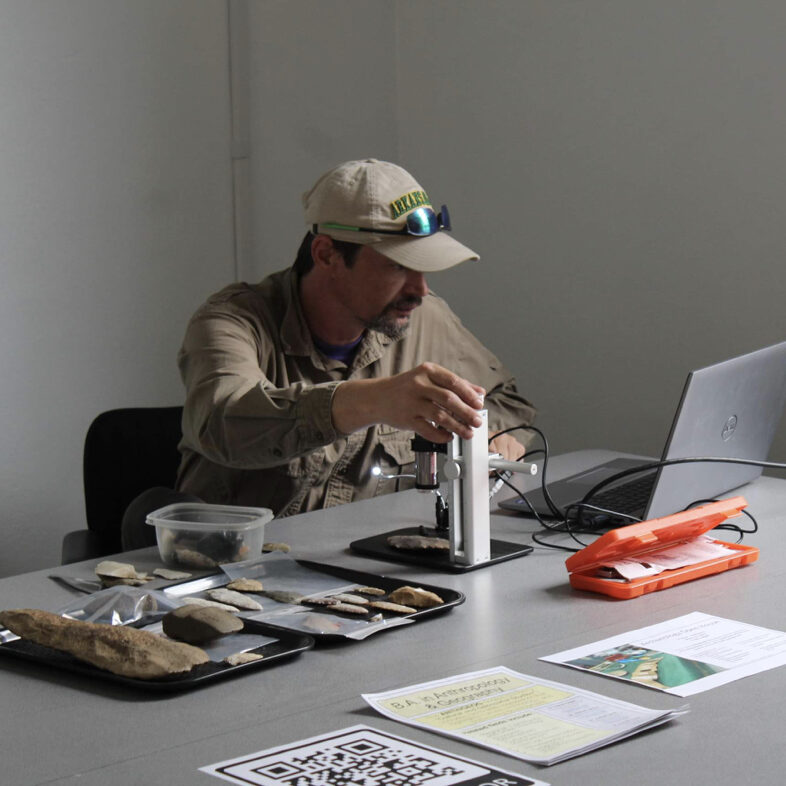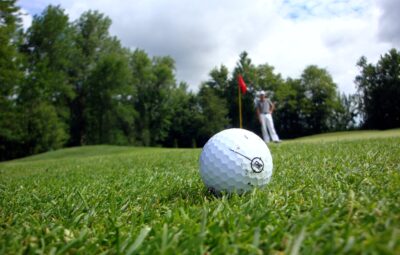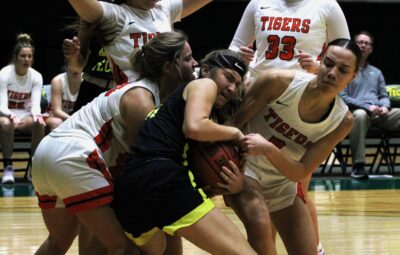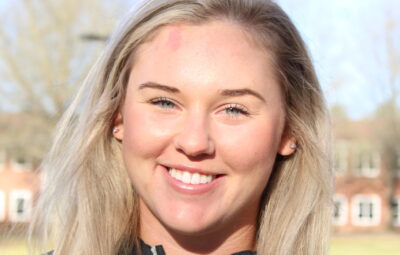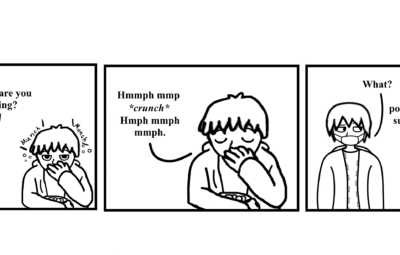PHOTO | Submitted
Walking into the Techionary, a brick building located between Nutt Residence Hall and Administration, I was greeted by the crisp air that only seems to be found in historic stone and brick buildings. This threshold marks a distinct line between the marshy, humid air that tends to sit over Russellville as the trees bud and the flowers bloom.
The familiar smell of antiquities and the smiling face of the social media correspondent for the Anthropology club, Riley Chronister, ushered me further into the building. The orange glow of overhead lights illuminating ancient stone artifacts, colorful posters dated half a century ago, and aged but regal military uniforms from wars fought before my grandparents were born.
Reaching the back of the building, I was led into a stark white room. I shook the hand of James Alumbaugh, the President of the Anthropology club, over a table filled with stone arrowheads. Pulling out a chair for Chronister, Alumbaugh sat across from me.
“We don’t do dinosaurs. There is a misconception that anthropologists do. Paleontologists deal with dinosaurs. Anthropology is the study of humans and their cultures and how they developed,” Alumbaugh said with a smile, as he reclined in a well-worn chair.
While the Techionary is not a literal museum, according to the anthropology majors, it still functions as one. Alumbaugh opted to refer to the place as a research station.
“To be a museum, you have to have certain certifications, qualifications, and big fat funding,” Alumbaugh said.
The anthropology club keeps the Techionary research station, which is open to the public, standing and running efficiently. In the wake of the Covid pandemic, the research station shut its doors for the foreseeable future.
That is, until the anthropology club decided to reopen its doors.
“We’re not a museum. We’re not technically open to the public, but I promise you, if some random [person] comes in and says, ‘Hey, I hear you do some anthropology around here,’ I would want to talk to them about it. I am going to talk your ear off and maybe have a cup of coffee while we’re doing it,” Alumbaugh said.
“We have new displays out now. It is not the same stuff over and over again. We work hard on these displays, and we want people to come in and appreciate them,” Chronister said.
According to Alumbaugh and Chronister, you do not have to be a major to be a part of the club. It does not matter what the specific interest is either, a student could be interested in archaeology, linguistics, physical, or biological anthropology.
“A lot of our numbers come from required anthropology courses that are required for Gen. Education. We have two or three new members, and Dr. Lynch [Anthropology Club Advisor] does a great job teaching people what anthropology is and how it can translate to different jobs in the future,” Chronister said.
The duo explained that March is archeology awareness month in Arkansas, so the club was busy at work. This included several very important tasks.
“We worked our tail ends off doing displays and research on the artifacts. March has been consumed with that,” Alumbaugh said.
All the hard work culminated in an open house which took place March 15. According to Chronister, this event was a success, resulting in many positives.
“The open house went great, we forged new relationships with the history and political science faculty that will ultimately increase access to the collections for students from those majors,” Chronister said.
Chronister added the importance of community outreach to the Anthro club. This includes things like historical maintenance, bake sales, and communicating with archaeology organizations, such as the Arkansas Archeological Survey.
There is an inherent nature of understanding, and willfulness to learn others’ cultures when one takes up the reigns of anthropology, something that the pair states is one of their favorite parts of anthropology.
Alumbaugh states, “Anthropology is about understanding. If you understand people, you’re going to be more successful in your life—in your career. Politicians and corporations hire anthropologists. You have to know your audience. There are real world applications for this [science].”
Anthropologists find themselves in an interesting middle ground when it comes to defining their studies. “There is a quote I like,” Alumbaugh states, “I cannot remember the author, but they say, ‘Anthropology is the most scientific of the humanities, and the most humane of the sciences.’ Anthropology benefits those with another degree in their life.”
According to Chronister and Alumbaugh, just being a part of the club is enough to see this love and study of differing cultures come to light.
This love for Anthropology, and by extension, the Anthro club, was not always the forerunner of their lives, however. They both began their schooling in a major that didn’t suit them as well as anthropology does.
Chronister was a fisheries and wildlife major prior to switching to anthropology. “I thought it was going to be so boring, and on the first day, it was incredible. The fisheries and wildlife people are amazing, the herpetology club is incredible. It wasn’t for me though. James [Alumbaugh] was the one to convince me to become an anthropology major,” Chronister said with an open-handed gesture to the man sitting next to her.
“Even a broken clock is right twice a day,” Alumbaugh said, as he shrugs his shoulders and flashes a bashful smile.
As for Alumbaugh, he wanted to become a history teacher before he realized his love for historical facts rested in culture, not in conflict. “Anthropology focuses more upon the people; we care about the big picture, but we also care about the small picture, and so that appealed to me more.”
After Alumbaugh helped Chronister realize their love for anthropology, the two became fast friends. Even in their off time, they tend to do anthropological studies in some way, shape or form.
This shows itself with Alumbaugh visiting Poverty point, an important cultural hub in Northeast Louisiana. The historical site was thought to be built around 1100 BCE by the indigenous people of the area. He brought back photos and stories to share the experience with the club.
Chronister found themself in Fayetteville during archaeology day, in which State Archeologist, Dr. Mel Zabecki, spoke.
“She’s one of my favorite archeologists. I gained a lot more wisdom from her. We are Mel Stans,” Chronister said, chuckling. “I am going to share her wisdom with the club.”
As for joining the club, it’s as simple as showing up to the Techionary and following their Instagram, which is @ATU_Anthclub. Those interested can also email Dr. Lynch at [email protected] for more information.
Walking out of the Techionary, it was hard to not feel like maybe I chose the wrong major. The way Alumbaugh and Chronister spoke about the major they found themselves in at ATU makes you want to share their anthropological passion.
I found myself wanting to learn more about every display they had up. Every pop of color in every vintage display caught my eye as I walked through the rooms towards the exit that Chronister led me through not 45 minutes prior.
The anthropological club feels less like a club and more like a family—a family with a shared passion that emanates through every interaction, both within the club, and outwardly.

